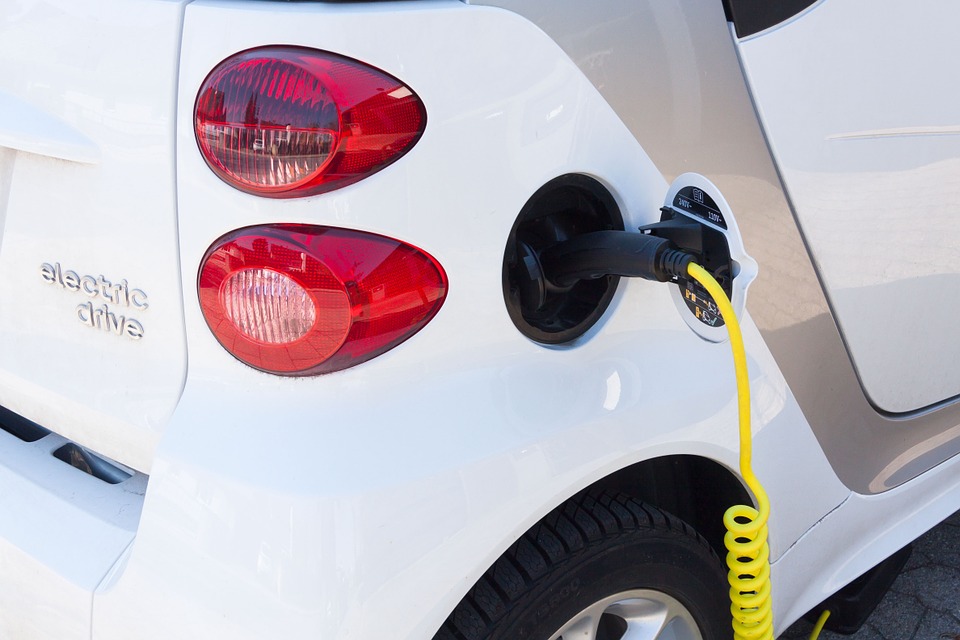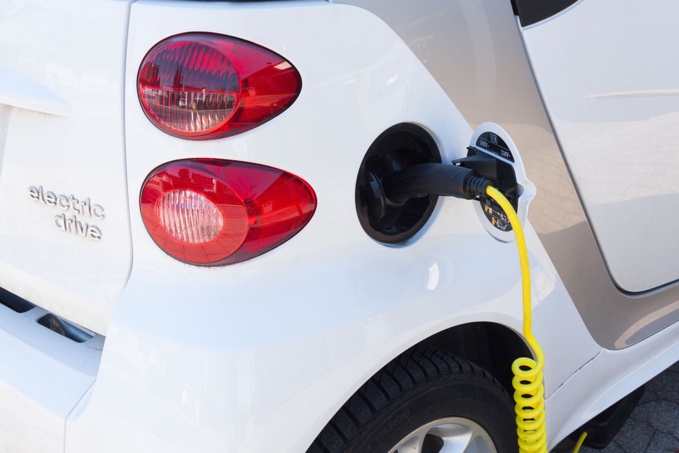Britain supported France’s initiative to ban the sale of gasoline and diesel vehicles from 2040 in order to improve air quality and reduce emissions leading to a greenhouse effect. When Europe's two largest economies promise to abolish technologies that have been supported by the automobile industry for over a century, investor’s fears about the fate of the industry become valid.
However, while the transition from internal combustion engines to electric motors will entail a short-term impact on the profits of automakers (and some suppliers), in the long run this can, on the contrary, lead to an increase in revenues. The position of European manufacturers is much more stable than it seems.
Today, electric cars account for less than 1% of total car sales in the European Union. Growth of this figure to 100% will require billions of investments in the next 20 years.
Cost of research and development of Daimler AG rose by 19% in the first half of 2017 compared to the same period last year.
Regulators have driven the industry into a corner, as the manufacturers now need additional investments to improve efficiency of existing internal combustion engines. Recently, Daimler spent 3 billion euros on a new batch of diesel engines. However, this technology may become obsolete rather quickly - especially if car manufacturers lose the PR battle for the diesel engine’s reputation. There is a risk that they will have to abandon the internal combustion engine once and for all.
According to Bloomberg, the breakpoint is expected around 2025, when prices for electric cars will be able to compete with conventional cars (without subsidies). From that moment, low operating costs will increase sales of electric vehicles dramatically. This can affect resale of gasoline and diesel vehicles - even before any government ban comes into effect.
Analysts at Berenberg expect a possible reduction in residual value for cars with internal combustion engines. This can be a threat to the leasing companies of automakers, which bring a big profit nowadays. Daimler finances half of its sales, and its financial unit generated 19% of revenue in the last quarter.
So where are the long-term advantages mentioned earlier? The fact is that automakers are not as weak as one might think, looking at their stocks. High demand helped Daimler generate 3 billion euros of free cash flow in the first half of the year. At the same time, its competitor, Groupe PSA, boasts over 13 billion euros at the end of June. The level of its operating margin reached 7.3%, which is extremely unusual for a mass producer.
This is a very decent stock, given the high costs that are expected in the coming years. As soon as electric cars overcome the initial investment barrier, they will start to cost less than cars with an internal combustion engine: prices for batteries are falling, an electric car requires much less mechanical stuffing, and, accordingly, fewer workers are required for production.
Stuart Pearson, an analyst at Exane BNP Paribas, said that electric cars will achieve operating profit of 10% by 2025 already. This is higher than profitability of a standard car with an internal combustion engine. Therefore, there is reason to believe that automakers will well survive the departure of internal combustion engines.
But what about workers? Although the British government has obviously breathed a sigh of relief, when on Tuesday BMW AG has promised to start production of the electric version of the Mini in Oxford, the electric drive of the car will be made in Germany. The ban on gasoline and diesel cars is one thing. Quite another is the concern that Britain will not be able to save jobs as a result of the electric revolution.
source: bloomberg.com
However, while the transition from internal combustion engines to electric motors will entail a short-term impact on the profits of automakers (and some suppliers), in the long run this can, on the contrary, lead to an increase in revenues. The position of European manufacturers is much more stable than it seems.
Today, electric cars account for less than 1% of total car sales in the European Union. Growth of this figure to 100% will require billions of investments in the next 20 years.
Cost of research and development of Daimler AG rose by 19% in the first half of 2017 compared to the same period last year.
Regulators have driven the industry into a corner, as the manufacturers now need additional investments to improve efficiency of existing internal combustion engines. Recently, Daimler spent 3 billion euros on a new batch of diesel engines. However, this technology may become obsolete rather quickly - especially if car manufacturers lose the PR battle for the diesel engine’s reputation. There is a risk that they will have to abandon the internal combustion engine once and for all.
According to Bloomberg, the breakpoint is expected around 2025, when prices for electric cars will be able to compete with conventional cars (without subsidies). From that moment, low operating costs will increase sales of electric vehicles dramatically. This can affect resale of gasoline and diesel vehicles - even before any government ban comes into effect.
Analysts at Berenberg expect a possible reduction in residual value for cars with internal combustion engines. This can be a threat to the leasing companies of automakers, which bring a big profit nowadays. Daimler finances half of its sales, and its financial unit generated 19% of revenue in the last quarter.
So where are the long-term advantages mentioned earlier? The fact is that automakers are not as weak as one might think, looking at their stocks. High demand helped Daimler generate 3 billion euros of free cash flow in the first half of the year. At the same time, its competitor, Groupe PSA, boasts over 13 billion euros at the end of June. The level of its operating margin reached 7.3%, which is extremely unusual for a mass producer.
This is a very decent stock, given the high costs that are expected in the coming years. As soon as electric cars overcome the initial investment barrier, they will start to cost less than cars with an internal combustion engine: prices for batteries are falling, an electric car requires much less mechanical stuffing, and, accordingly, fewer workers are required for production.
Stuart Pearson, an analyst at Exane BNP Paribas, said that electric cars will achieve operating profit of 10% by 2025 already. This is higher than profitability of a standard car with an internal combustion engine. Therefore, there is reason to believe that automakers will well survive the departure of internal combustion engines.
But what about workers? Although the British government has obviously breathed a sigh of relief, when on Tuesday BMW AG has promised to start production of the electric version of the Mini in Oxford, the electric drive of the car will be made in Germany. The ban on gasoline and diesel cars is one thing. Quite another is the concern that Britain will not be able to save jobs as a result of the electric revolution.
source: bloomberg.com



















